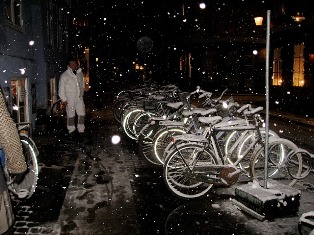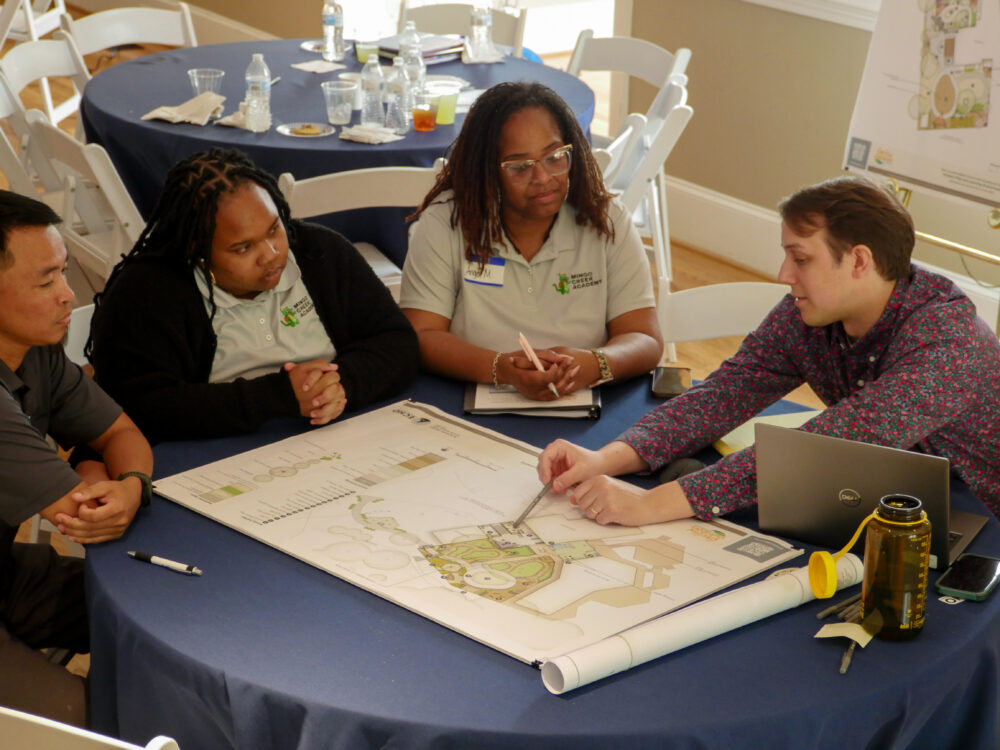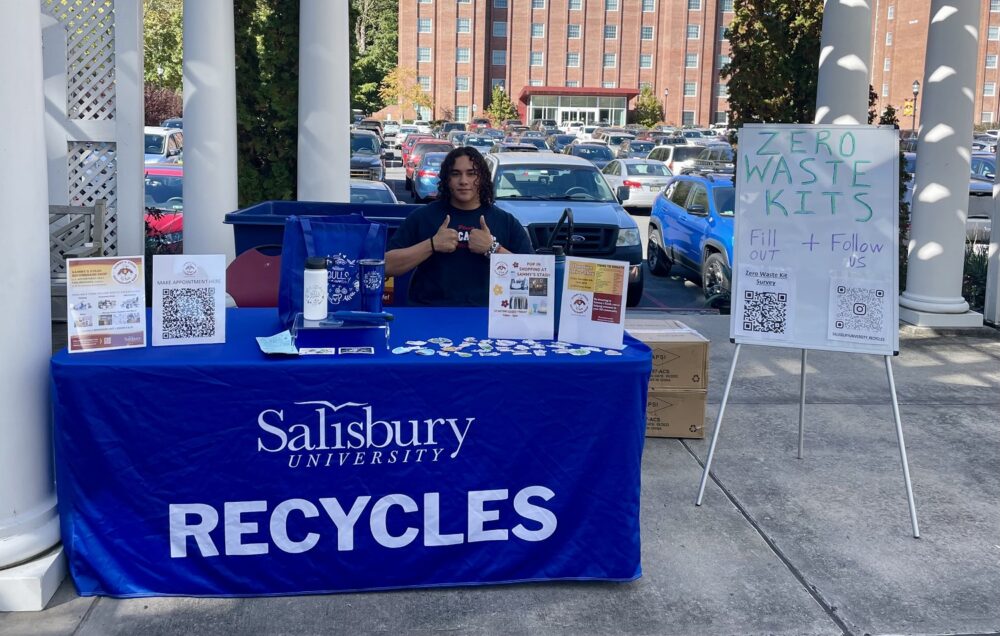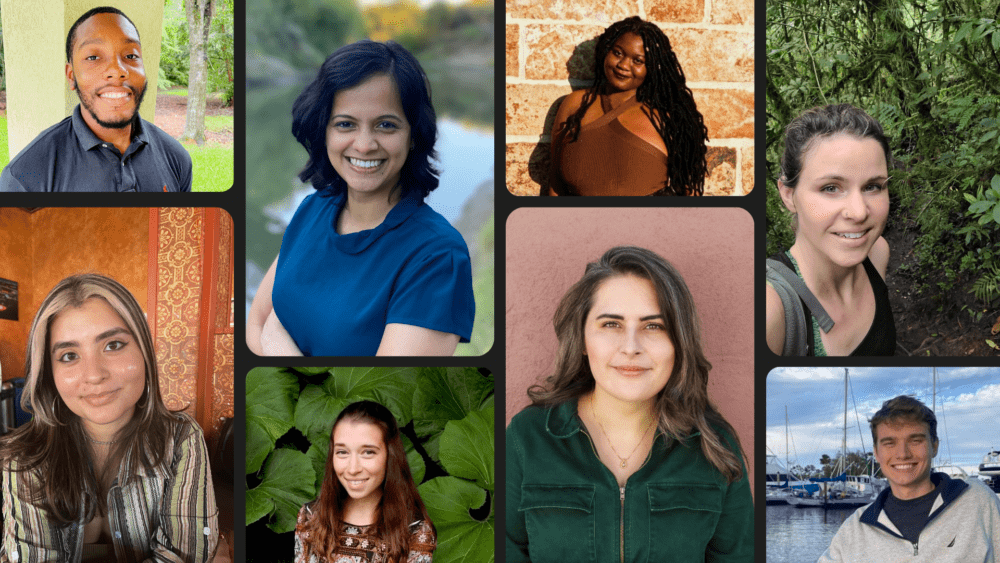We have much more to do and your continued support is needed now more than ever.
Special Report from Campus Ecology in Copenhagen
Carly Queen is a field coordinator for NWF’s Campus Ecology program and youth delegate for SustainUS. Just a few weeks ago, she was also our woman in Copenhagen for the U.N. climate talks. In a series of detailed blog posts, she laid out her impressions of the COP15 climate conference and lessons learned in the process. Here, she shares her thoughts on the final negotiations and her determination moving forward.

Unlike many of the youth delegates, I did not attend any protests or “actions” that took place during the conference. Rather than holding a sign, I chose the path of knowledge acquisition. Between the U.N. sessions and Klimaforum, I had more opportunities to learn in a few days than I might have during months of my “normal” life. Thinking through everything from nuclear energy to biodiversity means that some of my blog posts (listed below) are overlong, but I hope that a few of my conclusions might be useful to you.
I gained a much clearer perspective about what is to come and what needs to be done. What is being proposed in the most current version of the international climate treaty will not get us there. The Copenhagen Accord is insufficient, even if it becomes a legally binding treaty in the next year or so. A strong agreement is unlikely; as matters stand, it will not get ratified in the U.S. Senate, and the U.S. is only one of the parties that needs to agree to concrete, verified, sharp cuts in emissions. As citizens, we need to take up the responsibility that our government hasn’t. If there’s any conviction I’m leaving this conference with, it’s that you and I have plenty of power as individuals to make change happen. As citizens, homeowners, businessowners, employees, community members, congregations and organizations, we can begin to address climate change right now.
We can reduce our consumption of new products, meat, inefficient transportation, electricity and other goods and services that result in excessive amounts of greenhouse gases and other pollution into our atmosphere. We can learn about exactly why nuclear energy is not carbon neutral, cost-effective or safe. We can teach others what companies are environmentally and socially responsible and change the way our communities consume.

We must be realistic. The systems that we have constructed for our modern civilization are based on unlimited growth and unlimited resources. They ignore the natural limits that exist for us living on a finite planet. To end this series on a more positive note, here are a few ideas for ways that you, as a citizen of the industrialized world, can directly address climate change directly by acting locally:
- Support campus sustainability. Are you a student, faculty member, administrator, alum or otherwise affiliated with a college or university? Is your campus doing ALL that it can to lead the way toward carbon neutrality? Higher education has long been leading the sustainability movement, but there’s still a long way to go in addressing the climate crisis and other environmental concerns. Our siteis full of ideas and support to help your campus lead.
- Consume less meat and animal products. Yes, those activists handing out vegan sandwiches to conference attendees had a valid point. According to the United Nations, “the food and agriculture sectors contribute over 30 percent of the current annual total emissions”globally. This can largely be attributed to deforestation and emissions from agricultural sites. Overconsumption of meat in industrialized countries is also a major cause of malnutrition in other parts of the world.
- Reduce your energy consumption by becoming more efficient. Ditch the incandescents for CFLs and LEDs. Weatherize buildings to reduce their heating and cooling load. Make sure your school is doing the same: institute an employee policy of turning off all computers, printers and other electronics, as well as lights, when leaving the office. Work closer to home or move closer to campus so that you can cut down on your commute, or even walk or bike. Also consider using public transitto get yourself there; if none is available, find a way to encourage it at your university.
- Contact your elected officials. Let them know where you stand on issues of environment and climate justice. They can’t act on your behalf if you don’t tell them what you want. In fact, with all the campaign donations and information they get from special interests like oil and gas companies, they aren’t very likely to act on behalf of the people they represent unless lots and lots of citizens demand that they do so. Office visits and hand-written letters are best, but emails, phone calls and petition signatures are also helpful. Democracy does not end with a vote.
- Learn, teach and inspire others to action! Education is essential for realizing long-term change, and this is the job of the university. Begin by getting informed about issues and technologies that interest you. Learn the ins and outs of climate science and the apparent “debate” that continues to run rampant throughout the United States due largely to a lack of education and huge sums of money being used by polluters for their “manufactured doubt” campaigns. Learn how renewable technologies, as well as coal and nuclear power, work. Learn to weatherize buildings, or even how to install and maintain solar panels. Now that you have the necessary information, you have the power to teach others.
- Get involved with your local community. Support local farmers and sustainable businesses in your area. The more diverse and thriving your local economy is, the better off your community will be in the long term. If a community can provide itself with clean, renewable electricity, life-sustaining food, clean water, sustainable forms of transportation and other necessities, then that community will stand a much higher chance of enduring hard times.
It’s been an honor to be present for such an historic event, and I am so glad for the chance to share my experience with you. For more details on what I learned, as well as a few snippets of life in Denmark, see the posts below. Best of luck to you as you work towards a cleaner planet and a better life for its residents.
Peace and be well,
Carly





















